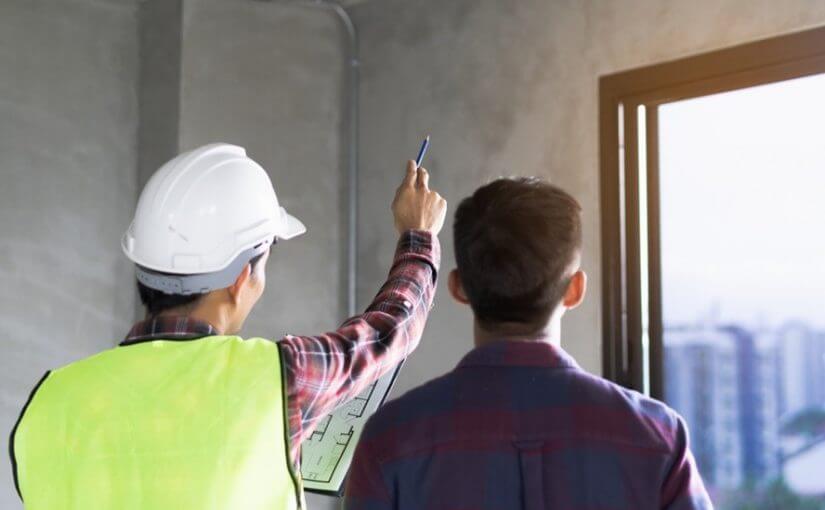Know What A Home Inspection Really Is
Home Inspections – Their Purpose and Proces
What is the purpose of a Home Inspection?
Many people misunderstand the purpose of a home inspection. The main purpose of a home inspection is to give you the information needed to make an informed decision on the purchase.
Most home inspectors focus on the major defects that will cost the buyer a lot of money above the purchase price to repair. Cosmetic items are rarely reported. By bringing these major defects to the buyers attention, the buyer can choose to negotiate with the seller with the intent on getting the major components repaired or a reduction in the selling price. This is acceptable and reasonable for the buyer.
However, I have seen buyers hand the report to the seller and demand that all the items listed in the report be fixed or they will walk away from the deal. Another buyer asked me to really pick the house apart because they wanted me to make the house appear as bad as possible so they could cheat the seller into greatly reducing their asking price. If this is your intent for an inspection, please call our office and cancel the inspection you have scheduled with us. Be sure to tell us why. Even though I work for my client’s best interest, this practice in unfair to the seller and is unethical for any inspector to agree to do. Our company will not take part of any situation that is questionable, dishonest or unethical.
If the seller can not afford to have the repairs corrected, you can still choose to buy the house with the full knowledge of what repairs are needed and the cost of the repairs will be your responsibility. Or, you may decide the cost of repairs is too much, then you can walk away from the deal and still get your earnest money back provided your contract has a “sale contingent on inspection” clause.

Home Inspection Process Explained
- A typical home inspection takes two to three hours, and during this time the house is examined from the ground up and from the outside in.
- A good home inspection should include observation, and when appropriate the operation, of the plumbing, heating, air conditioning, electrical, and appliance systems, as well as observation of structural components: roof, foundation, basement, exterior and interior walls, chimney, doors, and windows.
- Findings should be provided in the form of a comprehensive inspection report, which includes an objective evaluation of the condition the home clearly outlining any existing defects and potential problems.
Why Do You Need a Home Inspection?
A home inspection is particularly important when purchasing a home.
Buying a house is likely one of the largest purchases a person will ever make but few buyers are experienced in building construction, and overlooking a serious issue could result in a costly problem down the road. As a result many buyers choose to have a property inspection conducted prior to closing the sale. The inspection can identify any issues so the buyer can discuss these with the seller during negotiations.
At Pillar To Post we encourage our clients to accompany us during the home inspection. This gives buyers a chance to ask questions, and to get detailed information about maintaining the home and its systems. For homeowners this allows them an opportunity to answer any questions the inspector may have. In either case, accompanying an inspector can help a client get the most from a home inspection.
Strata inspection
A unit inspection involves a different set of criteria than a house inspection. Aside from the physical condition of that unit, the inspector will also examine the strata agreement as well as certain aspects of the building in which the unit exists. Some of the details that will be looked at in a strata inspection include:
- Exterior of the unit
- Interior of the unit space
- Whether the strata scheme is in compliance with asbestos & fire rules
- Insurance for the building
- Other special levies
- Entitlements and voting rights
- Building reports
- Major expenditures & proposed major expenditures
- Quarterly strata fees
- Whether or not the structure is harmonious
A strata inspection will also look at all the copies of the minutes from meetings such as the owners’ corporation AGM’s etc. A strata inspection report is important because the apartment unit you’re purchasing doesn’t exist in isolation. It’s subject to all the rules & regulations governing the property in which it exists.
While a house inspection report and a strata inspection report examine different details, both of these are crucial for a property buyer. The few hundred dollars that you spend on getting these inspections done can provide you peace of mind and save you a significant amount of money in the long term.

Home inspection checklist: the components
Here’s what the inspector will review, according to the American Society of Home Inspectors’ (ASHI):
- Heating system
- Central air conditioning system (temperature permitting)
- Interior plumbing and electrical systems
- Roof
- Attic, including visible insulation
- Walls
- Ceilings
- Floors
- Windows and doors
- Foundation
- Basement
- Structural components
Clearly, the inspector isn’t going to tear your home apart to inspect piping and wiring. But the more she has access to, the better the final report will be.